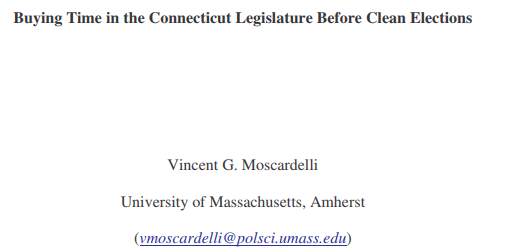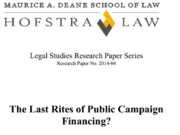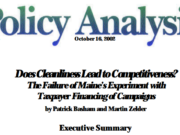The authors investigate a simple question: what does money contributed to legislators buy? Evidence that money buys votes (and theoretical explanations for why we should expect such a relationship) is thin at best. A more compelling explanation of what money buys argues that money buys legislators’ time. Using a research design similar to that employed in previous academic studies, the authors investigate the impact of campaign contributions, institutional position, legislative experience, and constituency interest on rates and types of participation in committee by Connecticut state legislators before the implementation of public financing in that state. This paper is part of a larger research project on the impact of taxpayer financed elections on electoral and legislative politics in the states. While the current analysis is limited to a rather small sample of legislation that meets the criteria necessary to execute this design, their findings are encouraging. The authors emphasize three here: (1) campaign contributions from interest groups (in this case, labor unions) are positive predictors of legislators’ participation in committee-level deliberations over legislation in which the group has a strong stake; (2) one’s status as a party leader depresses one’s level of participation in committee deliberations, as does being a first term legislator; and, (3) the relationship between contributions and participation emerges only on the committee of primary referral.














